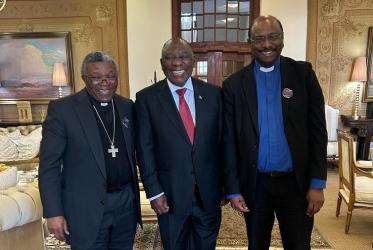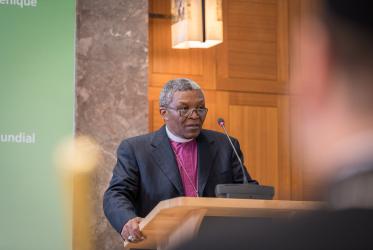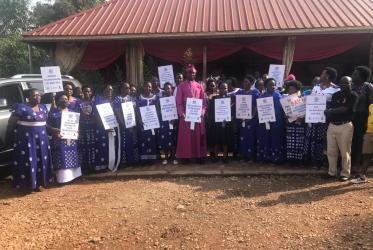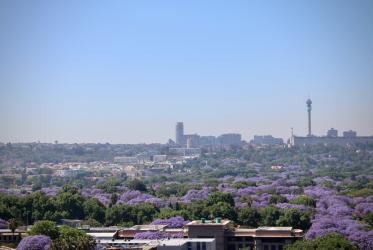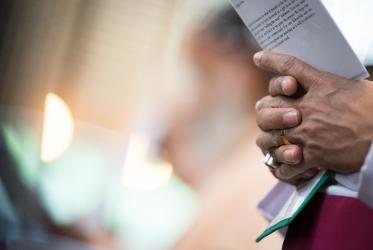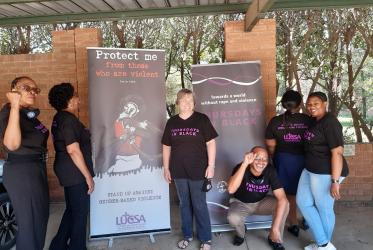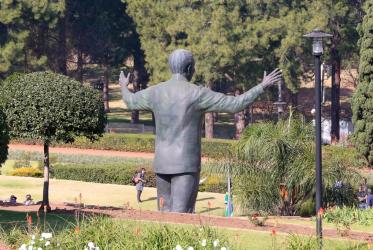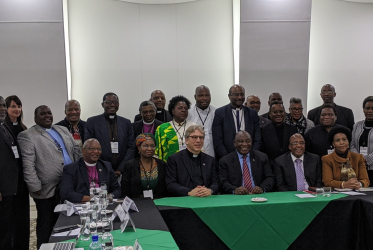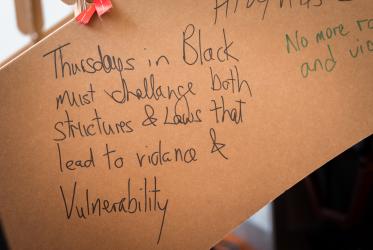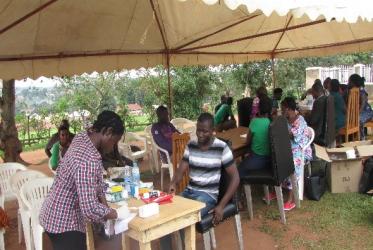Displaying 1 - 20 of 52
WCC condemns bombings in Uganda, calls for justice
18 November 2021
South Africans draw hope despite recurring challenges
16 December 2019
WCC delegation meets with South African President Ramaphosa
09 December 2019
Youth leaders: “We will stop at nothing” to end HIV and violence
17 October 2019
Churches in southern Africa stand against violence, xenophobia
10 October 2019
When you strike the women, you strike a rock
18 September 2019
